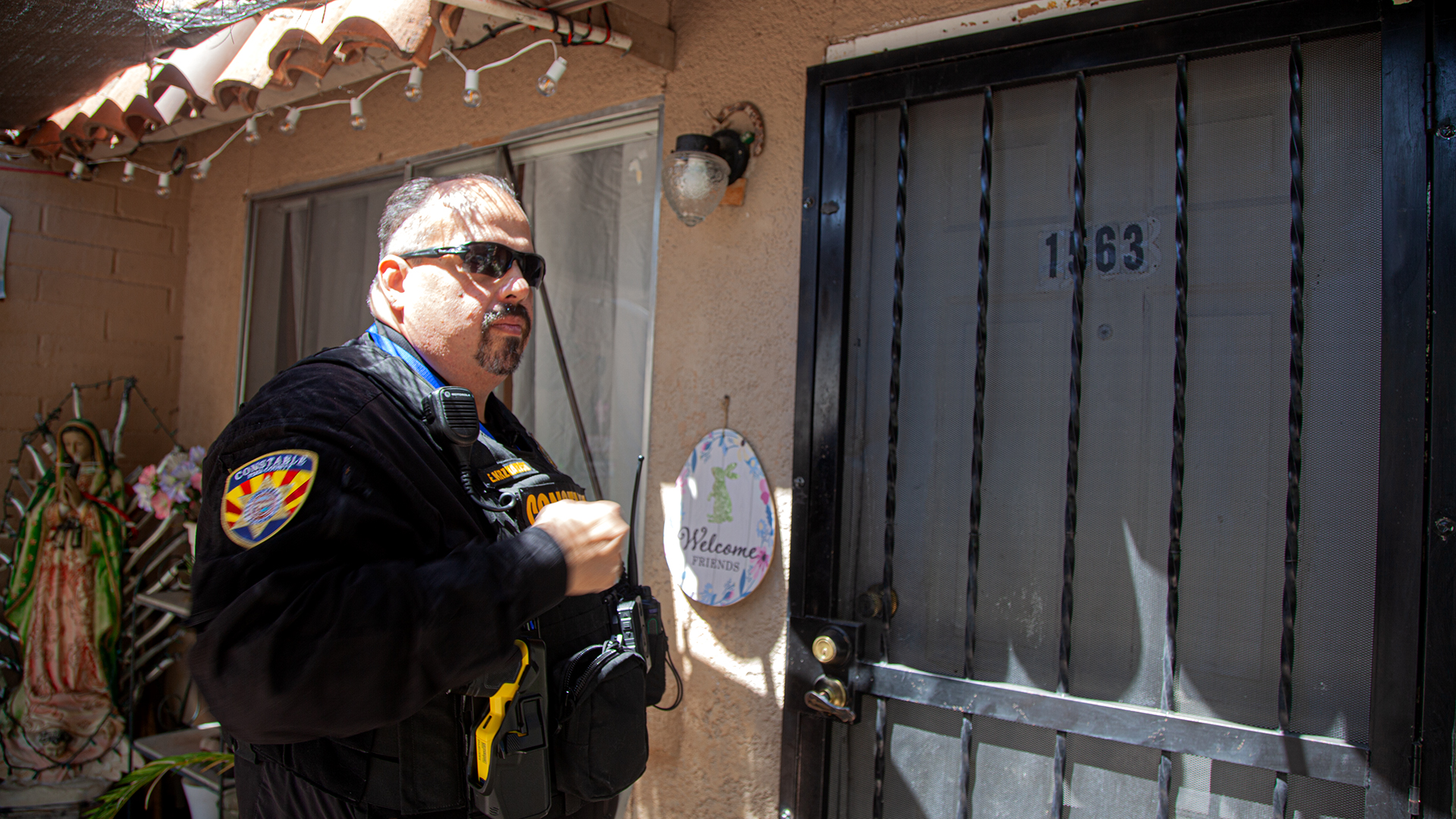 Presiding Pima County Constable Eric Krznarich knocks on the door of a tenet that is being evicted.
Presiding Pima County Constable Eric Krznarich knocks on the door of a tenet that is being evicted.
As eviction filings surge in Pima County, constables like Eric Krznarich face the heart-wrenching task of removing families from their homes, a duty that weighs heavily on those who must enforce the law.
Krznarich, an elected officer of the county justice courts, starts his day in a uniform resembling that of a police officer or sheriff, ready to evict a Hispanic couple from their home.
"No one feels good about kicking a family on the street," he says. "When it comes down to it, it's an unfortunate thing. It's our job. We don't take pleasure in it at all."
He recalls another recent case involving a mother and her two children who had to leave their home. With the help of Eviction Legal Services, they found temporary accommodation in a hotel.
"It's still hard," Krznarich notes. "But it helped the transition a little bit."
Keith Bentele, an Associate Research Professor with the Southwest Institute of Research on Women, highlights the economic pressures behind these stories. His research shows that rents have risen roughly 35% since 2020, putting a significant strain on families as incomes fail to keep pace with inflation. Even last year, eviction filings rose to a new high since 2016 at 12,993 in Pima County.
"As more lower-income families find themselves in tighter financial situations regarding their rent, they're simply at higher risk of eviction when normal life events cause financial crises," Bentele explains.
The complexity of the issue is underscored by property owner Jim Sarantides, who faces his own challenges.
"Yeah, I feel bad. But at the same time, it's a business," he says. "I can't be raising everybody else's rent because somebody else doesn't want to pay. It's not fair to them."
Families often must make tough decisions about their expenses, prioritizing utilities, transportation, and other essential costs over rent. This financial juggling act leaves many vulnerable to eviction when unexpected expenses arise.
Krznarich observes, "It just comes down to people triaging what priorities they need to pay—keeping the power on, water for baths, fuel for school and work. Do I make my car payment or my rent payment?"
Despite a recent decrease in eviction filings and a slower rate of rent increases, Bentele stresses the need for larger-scale solutions to prevent eviction and homelessness.
"We need to think differently and on a larger scale about what we can do locally to prevent outcomes like eviction and homelessness," he says. "I think it feels like a big ask, but I really believe we can do more to protect our vulnerable community members."
Krznarich and his colleagues are left to manage the immediate fallout of these systemic issues.
"It is tough. You do feel bad sometimes. But unfortunately, that's our job. And I like to say God gave me big shoulders to handle all that.”

By submitting your comments, you hereby give AZPM the right to post your comments and potentially use them in any other form of media operated by this institution.